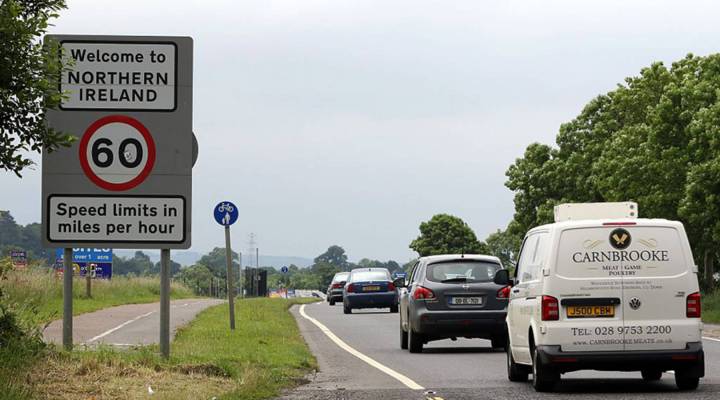
Brexit creates problem on Northern Irish border

The convoluted path toward Brexit takes another turn this week when European Union leaders gather in Brussels to assess how much progress Britain has made in negotiating its departure from the bloc.
Their verdict is likely to be: not much. One of the key sticking points is the future of the border on the island of Ireland between the British province of Northern Ireland and the Irish Republic in the south.
After Brexit, this will be the only land border between the United Kingdom and the rest of the EU.
The Irish government, backed by the other 26 EU member states, is demanding that after Brexit, the border remain as open and accessible as it is today without any customs posts and inspections.
That’s a difficult ask. How does Britain pull out of the EU and take back control of its borders while leaving its only land border with the EU wide open?
Many Brexit supporters suspect that the issue has been used by the EU to make Britain’s departure as uncomfortable as possible and, perhaps, even to stop Brexit altogether.
But the Irish government insists that it is genuinely concerned that the re-imposition of a so-called “hard border” with the north will reignite the violent struggle over a united Ireland.
And there are plenty of economic and social reasons why people on both sides of the border want it to stay open.
“Thirty-five percent of my business is done in the Republic of Ireland, so I’m crossing that border every day,” George Fleming, boss of a farm machinery manufacturing company near Londonderry in Northern Ireland, told Marketplace. Fleming said he is worried about his exports to the republic facing tariffs after Brexit and about any new customs checks on the narrow two-lane highway south.
“The amount of traffic we have crossing the border everyday … all it takes is to stop a car for 30 seconds and you will have miles of tailback,” he said.
You hear the same fears expressed just across the border in the Irish county of Donegal.
The tiny Boghoppers Brewery, which produces a small range of specialist brews with indelicate names like “Dirty Chick” and “Horny Ram,” is also concerned about the cost of possible tariffs and border delays. Ironically, the co-owner Aine Mullan is worried that it will become more expensive for her Irish brewery to supply the big market in the Irish capital. Her quickest route to Dublin is through Northern Ireland, and that journey may become more difficult after Brexit.

Aine and David Mullan of the Boghopper Brewery in the Irish county of Donegal.
Donegal, a remote and rural county, buys a lot of supplies from the United Kingdom across the border, and that has raised fears that prices will rise. Including, bizarrely, the cost of using a cellphone.
Irish people living or working near the border would often find that their phones were hooked up to British networks and they’d have to pay extra for the privilege; they would pay roaming charges in their own country. The EU banned roaming charges but, once outside the EU, British networks could restore them.
Health care could be an issue, too. For thousands of Irish patients along the border, their nearest hospitals are in the north, in the United Kingdom. Under EU rules, they have been able to use those hospitals without payment. Eamonn O’Sullivan, the top civil servant in the Irish border county of Monaghan, said that there is a widespread anxiety that such treatment will be discontinued after Britain leaves the bloc.
“Everyday lives and businesses on both sides of the border will suffer badly if Britain leaves the EU without a deal that preserves the status quo as much as possible,” O’Sullivan said.
“It would be a disaster for the whole border region … without a doubt,” he said. “A disaster.”
There’s a lot happening in the world. Through it all, Marketplace is here for you.
You rely on Marketplace to break down the world’s events and tell you how it affects you in a fact-based, approachable way. We rely on your financial support to keep making that possible.
Your donation today powers the independent journalism that you rely on. For just $5/month, you can help sustain Marketplace so we can keep reporting on the things that matter to you.












